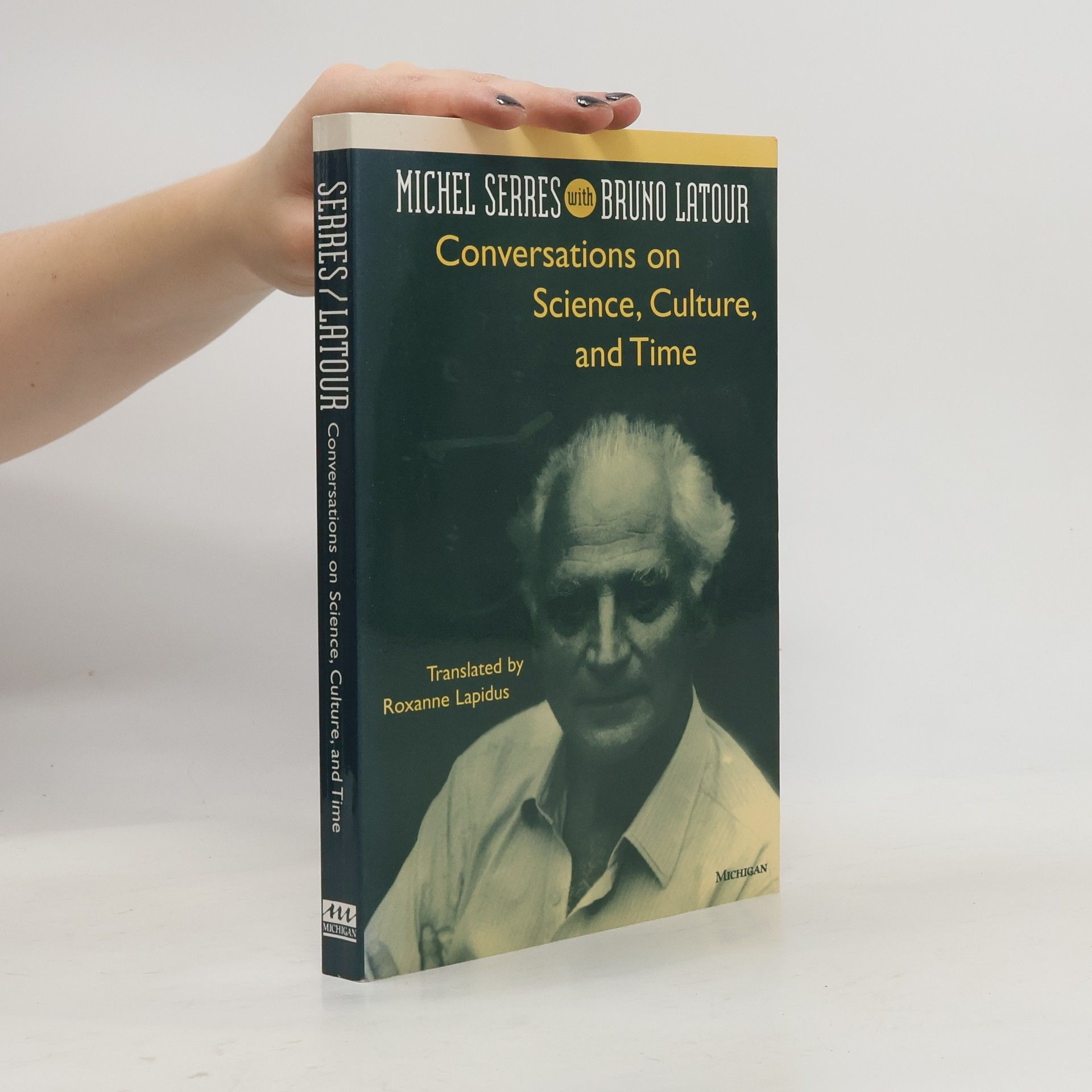"Qui mange à table d'hôte, invité gourmand, parfois beau causeur est dit parasite. La bête petite qui vit de son hôte, qui change son état courant et le met en risque de mort, est dite, encore parasite. Le bruit qui interrompt sans cesse nos dialogues ou intercepte nos messages, voici toujours le parasite. Pourquoi nomme d'un même mot un homme, une bête et une onde? Voici un livre d'images d'abord comme réponse à la question, une galerie de portraits. Il faudra un peu deviner qui se dissimule sous les plumes et sous les poils, et sous l'accoutrement du fabuleux. Des animaux, grands et petits, mangent ensemble, leur festin est interrompu. Comment? Par qui? Pourquoi? Sortent les animaux, les repas continuent. Nous mangerons avec Jean-Jacques, avec Tartuffe, avec Socrate, avec les frères de Joseph ... Le parasite prend et ne donne rien : des mots, des bruits, du vent. L'hôte donne et ne reçoit rien. Voici la fléche simple, irréversible, sans retour, elle vole entre nous, c'est l'atome de la relation et c'est l'angle du changement. Abus avant l'usage et vol avant l'échange. On peut construire, à partir d'elle, ou repenser au moins, techniques et travaux, économie et société."--Page 4 of cover
Michel Serres Livres


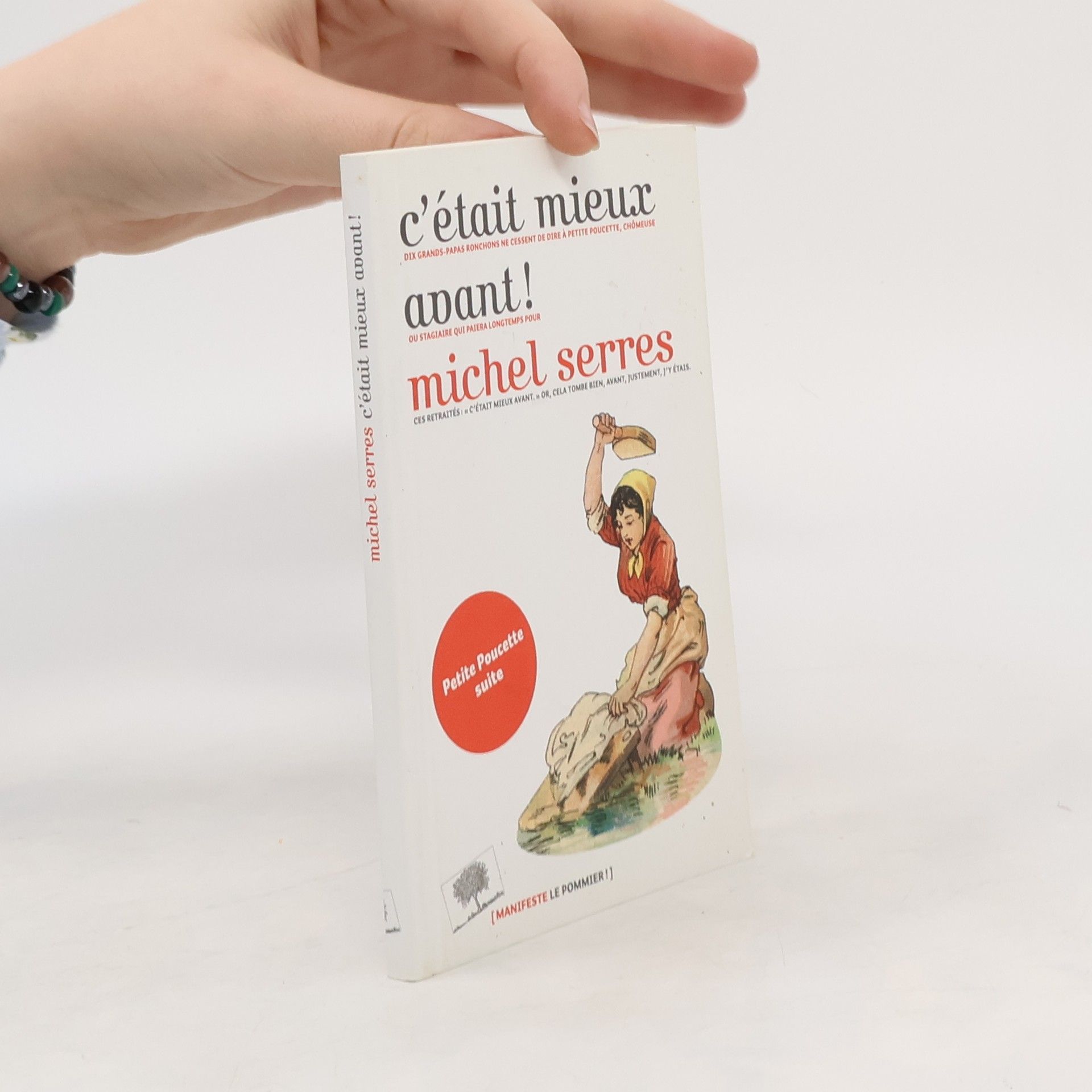
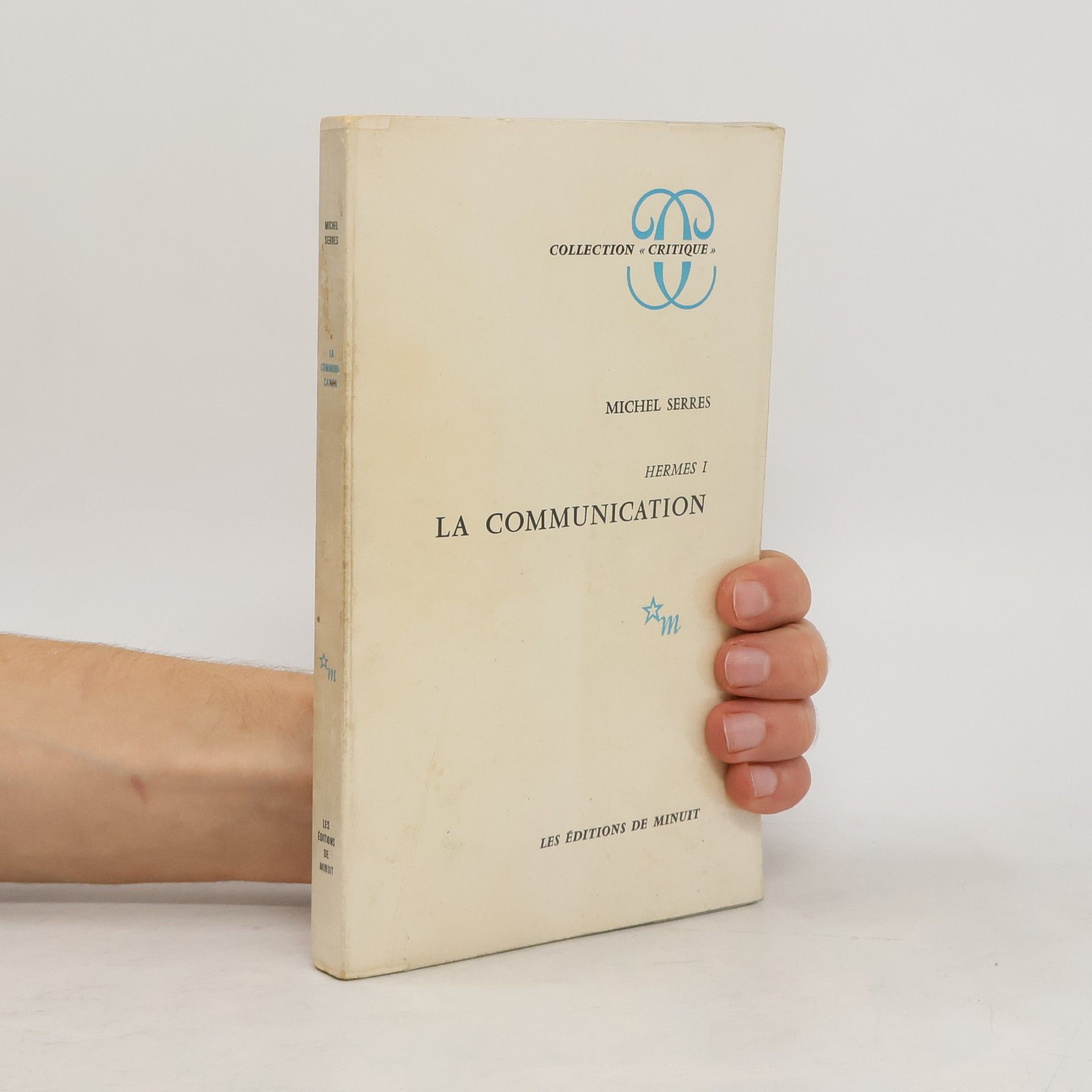
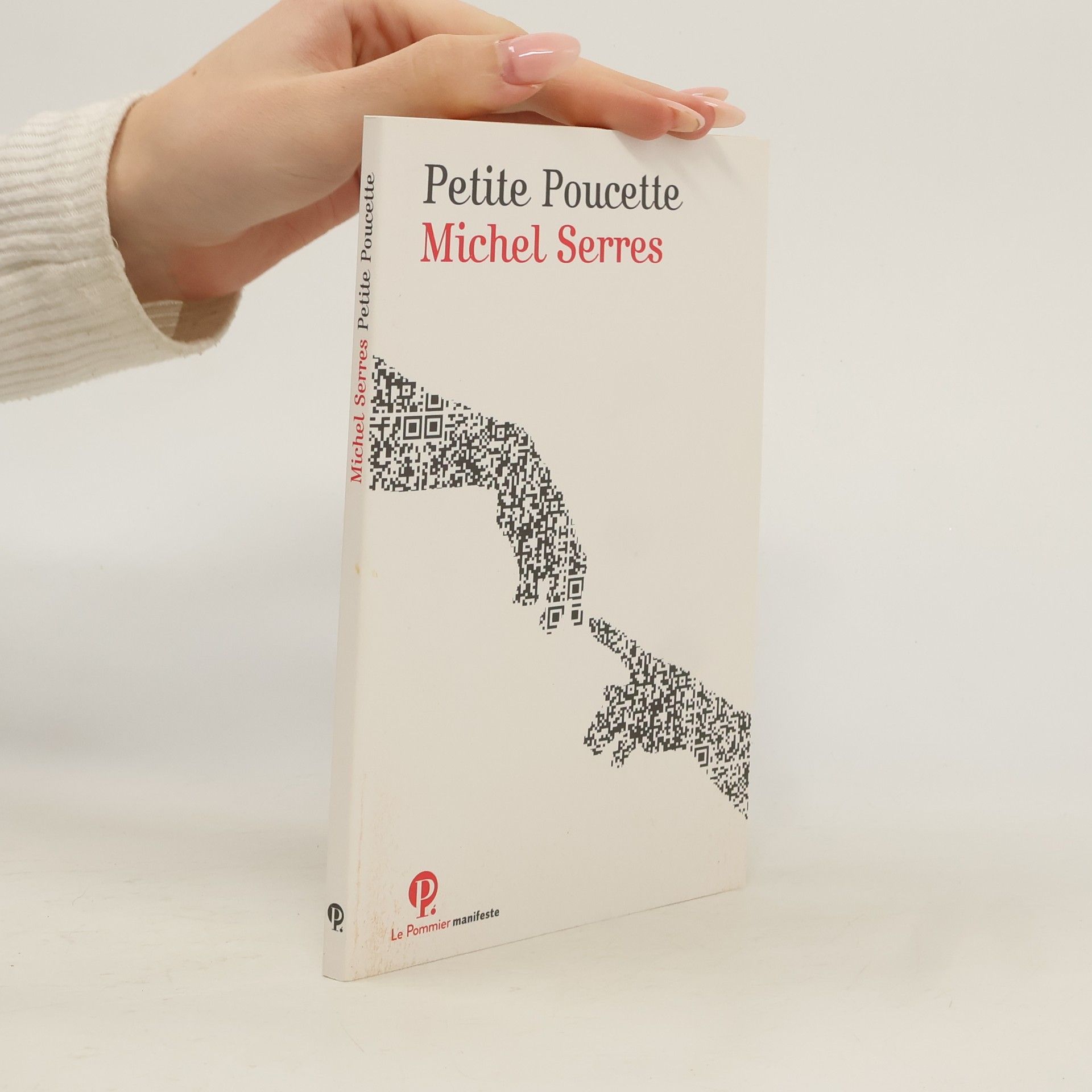
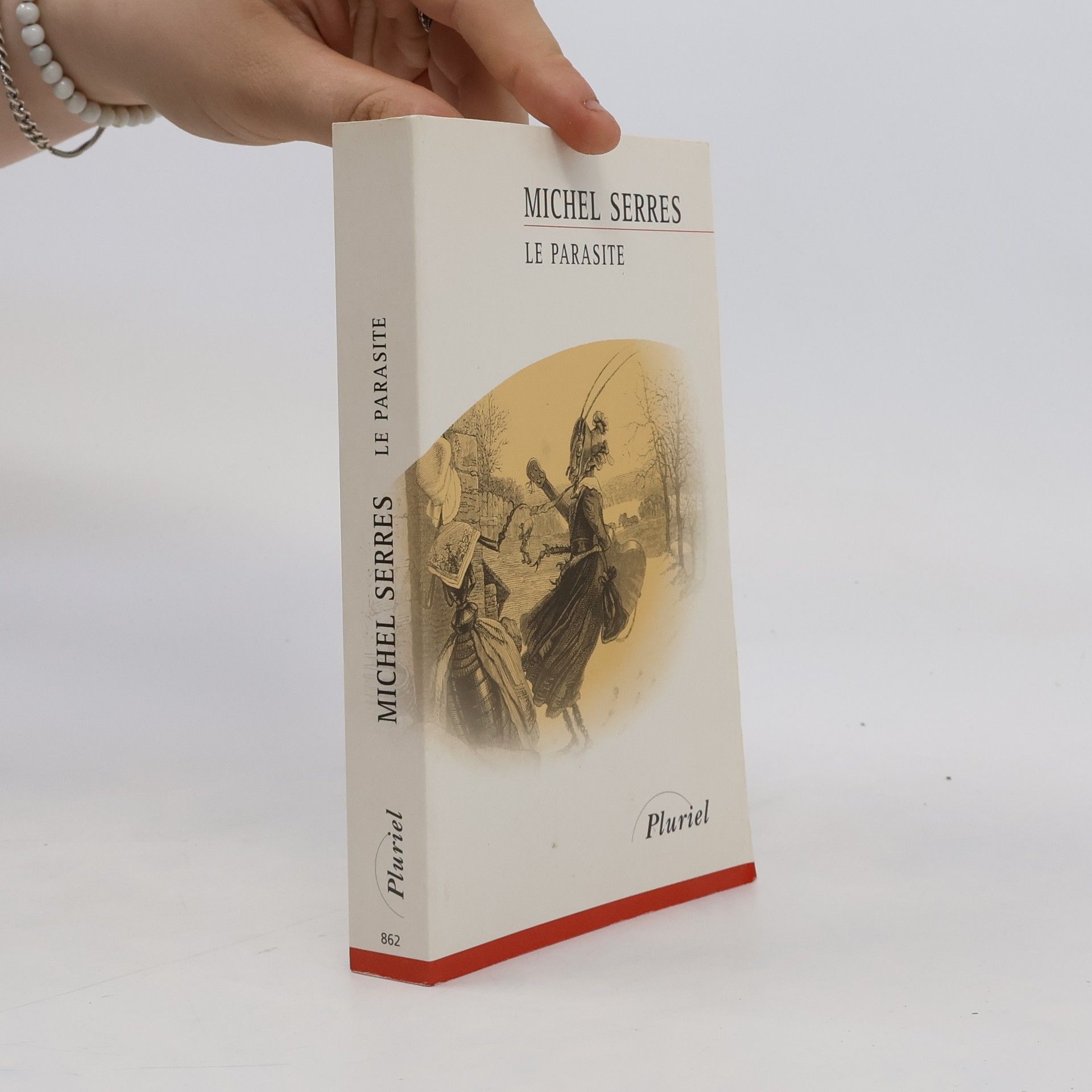
Petite poucette
- 82pages
- 3 heures de lecture
"Nos sociétés occidentales ont déjà vécu deux révolutions : le passage de l'oral à l'écrit, puis de l'écrit à l'imprimé. Comme chacune des précédentes, la troisième, tout aussi décisive, s'accompagne de mutations politiques, sociales et cognitives. Ce sont des périodes de crises. De l'essor des nouvelles technologies, un nouvel humain est né : Michel Serres le baptise "Petite Poucette". Petite Poucette va devoir réinventer une manière de vivre ensemble, des institutions, une manière d'être et de connaître..." [Source : extrait de la 4e de couv.]
C'était mieux avant !
- 96pages
- 4 heures de lecture
Avant ? Justement j’y étais ! Je vais vous raconter… « Dix Grands-Papas Ronchons ne cessent de dire à Petite Poucette, chômeuse ou stagiaire qui paiera longtemps pour ces retraités : “C’était mieux avant.” Or, cela tombe bien, avant, justement, j’y étais. Je peux dresser un bilan d’expert. Qui commence ainsi : avant, nous gouvernaient Franco, Hitler, Mussolini, Staline, Mao… rien que des braves gens ; avant, guerres et crimes d’état laissèrent derrière eux des dizaines de millions de morts. Longue, la suite de ces réjouissances vous édifiera. » Michel Serres
Le Tiers-Instruit
- 249pages
- 9 heures de lecture
Etrange et original, déjà mélangé des gènes de son père et de sa mère, en tiers entre eux, tout enfant n'évolue que par nouveaux croisements, toute pédagogie reprend l'engendrement et la naissance d'un enfant : né gaucher, il apprend à se servir de la main droite, demeure gaucher, renaît droitier, au confluent des deux sens ; né gascon, il le reste et devient français, en fait métissé ; français, il se fait espagnol, italien, anglais, ou allemand, s'il épouse et apprend leur culture et leur langue, en gardant les siennes propres, le voici quarteron, âme et corps mêlés. Son esprit ressemble au manteau d'Arlequin. Cela vaut pour instruire autant que pour élever les corps. Le métis, ici, s'appelle Tiers-Instruit. Scientifique, plutôt, par nature, il entre dans la culture parce que la science épouse aujourd'hui les questions, par elle seule imprévisible, de la douleur et du mal. Il suffit d'apprendre deux choses : la raison exacte et les maux injustes ; la liberté d'invention, donc de pensée, s'ensuit. Cela vaut enfin pour la conduite et la sagesse, pour l'éducation. Elle consiste et demande à épouser l'altérité la plus étrangère, à renaître donc métis. Aime l'autre qui engendre en toi une troisième personne, l'esprit.
" Aller droit au but " : tel paraît être le mot d'ordre de nos sociétés modernes. A l'heure du TGV, d'Internet et du GPS, le détour est perçu comme une perte de temps, une errance inutile, voire une fuite. A bien des égards, il est pourtant essentiel à notre humaine condition. En effet, l'individu peut-il se construire et s'enrichir s'il ne sait pas s'éloigner des chemins balisés ? Le général d'armée parvient-il à tromper son adversaire s'il ne maîtrise pas la feinte ? Et l'amoureux réussit-il à séduire sans artifices ? Bien plus, peut-on apprécier la vie sans prendre le temps de goûter ses plaisirs ? Et si le détour était finalement le meilleur moyen de ne pas se perdre...
Religion
- 184pages
- 7 heures de lecture
With this profound final work, completed in the days leading up to his death, Michel Serres presents a vivid picture of his thinking about religion--a constant preoccupation since childhood--thereby completing Le Grand Récit, the comprehensive explanation of the world and of humanity to which he devoted the last twenty years of his life. Themes from Serres's earlier writings--energy and information, the role of the media in modern society, the anthropological function of sacrifice, the role of scientific knowledge, the problem of evil--are reinterpreted here in the light of the Old Testament accounts of Isaac and Jonah and a variety of Gospel episodes, including the Three Wise Men of the Epiphany, the Transfiguration, Peter's denying Christ, the Crucifixion, Emmaus, and the Pentecost. Monotheistic religion, Serres argues, resembles mathematical abstraction in its dazzling power to bring together the real and the virtual, the natural and the transcendent; but only in its Christian embodiment is it capable of binding together human beings in such a way that partisan attachments are dissolved and a new era of history, free for once of the lethal repetition of collective violence, can be entered into.
Branches
- 208pages
- 8 heures de lecture
Despite being one of France's most enduring and popular philosophers, Branches is the first English translation of what has been identified as Michel Serres' key text on humanism. In attempting to reconcile humanity and nature, Serres examines how human history 'branches' off from its origin story. Using the metaphor of a branch springing from the stem and arguing that the branch's originality derives its format, Serres identifies dogmatic philosophy as the stem, while philosophy as the branch represents its inventive, shape-shifting, or interdisciplinary elements. In Branches, Serres provides a unique reading of the history of thought and removes the barriers between science, culture, art and religion. His fluency and this fluidity of subject matter combine here to make a book suitable for students of Continental philosophy, post-humanism, the medical humanities and philosophical science, while providing any reader with a wider understanding of the world in which they find themselves.
Illuminating conversations with one of France's most respected--and controversial--philosophers
For the first time in English, the introductory volume in a major French philosopher's groundbreaking series of poetic transdisciplinary works Michel Serres is recognized as one of the giants of postwar French philosophy of knowledge, along with Giles Deleuze, Jacques Derrida, Michel Foucault, and Gilbert Simondon. His early five-volume series Hermes, which appeared in the 1960s and 1970s, was an intellectual supernova in its proposition that culture and science shared the same mythic and narrative structures. Hermes I: Communication marks the start of a major publishing endeavor to introduce this foundational series into English. Building on the figure of the Greek god Hermes, who presides over the realms of communication and interpretation, Hermes I embarks on a reflection concerning the history of mathematics via Descartes and Leibniz and culminates by way of a Bachelardian logoanalytic reading of Homer, Dumas, Molière, Verne, and the story of Cinderella. We observe a singular poetic philosopher seeking to bridge the gap between the liberal arts and the sciences through a profound mathematical and poetic fable regarding information theory, history, and art, establishing a new way to think about the production of knowledge during the late twentieth century. In these pages, students and scholars of philosophy will discover an extraordinary project of thought as vital to critical reflection today as it was fifty years ago.

